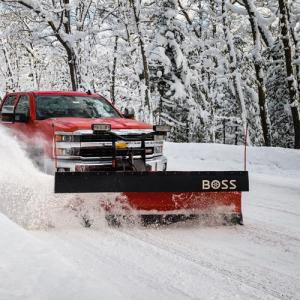5 reasons why you need a beach vacation in Montana
~Trip 101
The Treasure State is famous for its mountain ranges – it is home to over 100 of them after all. This landlocked state probably wouldn’t be the first place that would spring to mind when you think of taking a beach holiday, however, if you don’t consider it, you’ll be seriously missing out! The lakeside shores are great for relaxing and topping up your tan, swimming in crystal clear blue waters, and there are lots of opportunities for kayaking, fishing, and other outdoor activities. In this article, we’ll look through the reasons that you need to take a beach vacation in Montana – by the end of the article you’re sure to be already planning your trip!
- It’s fun for all the family.
There’s so much to do at Montana’s beaches that you won’t be worrying about whether or not everyone will be entertained as it’s impossible to be bored! Take Boettcher Park beach for example. While the adults are relaxing by the crystal waters of Flathead Lake, there’s a children’s playground where you can leave the little ones safe and sound – and most importantly they’ll have a load of fun! Consider bringing them here for a special treat too – there’s a covered area which is reserved just for kids’ birthday parties.
And furry, four-legged friends haven’t been forgotten either! Many of the top beaches in the state have an area just for dogs too, meaning that you don’t have to leave behind your beloved pet during your holiday. Bozeman pond canine beach is a real hit with dog-lovers.
For more outdoorsy families, consider somewhere like Lake MacDonald. The biggest alpine lake in Glacier National Park offers canoeing, kayaking, and youngsters and adults alike will love taking a refreshing dip in its blue waters.
- There’s plenty to keep you entertained.
Montana’s beaches aren’t just great for relaxing and sunbathing. Many beaches have areas dedicated to a number of different activities where you can get active and try some new activities. Want to try your hand at fishing? Head to Cooney reservoir. Fancy heading out onto the water without getting wet? Take a canoe or a paddleboat out at City Beach in Whitefish. Want to play sand volleyball, have a go in the horseshoe pit, or play catch on huge grassy fields by the shore? Check out Bozeman Beach. Many of Montana’s beaches have great swimming options too, so you’ll never be at a loss for things to do.
Although these activities can be done for most of the year, there are a number of special one-off activities that you can either take part in or watch. Either way, you’ll be entertained! Don’t miss Whitefish’s carnival penguin plunge or the Whitefish Lake Run.
With all the excitement offered by the state’s beaches, you’ll probably not want to go home!
- You don’t have to stay just for the day.
So, we’ve already established that there’s sunbathing, sports, swimming, and a whole load of other activities to do on The Treasure State’s beaches. How on earth do you fit that all into one day? Well, you don’t have to. The state’s beaches have excellent spots for camping, and not only can you turn up and pitch your tent, but you can also rent cabins, yurts, or tipis in over 500 campsites throughout the state, many of them close to lakeside beaches.
If you’re from out of state, you’ll have to buy a non-resident entrance pass, which costs $35 per vehicle. This pass will permit you to an unlimited number of annual visits and discounted camping fees for a year from the first usage. You can buy this from the Montana Fish Wildlife & Parks. Owning this excellent pass is the perfect excuse to check out a number of Montana’s different beaches, after all, no two are alike!
If you don’t want to camp, there are also a number of great hotels, B & Bs, and guest houses within easy reach of the state’s best beaches, as well as private accommodation. Pick a beach and check out the accommodation close by – there’s bound to be something perfectly suited to your tastes.
- The beaches are generously spread across the state.
Montana is huge. You may not know this, but it’s the 4th largest state in the USA. Road trips can be really fun, but sometimes you just want to get in the car and be at your destination in a super quick time. Great! Don’t think you have to travel for hours to find a pristine beach in Montana, as they’re spread liberally across the state. From Whitefish city beach and Boettcher Park in the Northwest of the state to Brush Lake state park in the east, there’s a strip of sand (or pebbles) near you.
Of course, if you want to rent an RV or go on a road trip with the family, that can be a lot of fun too, and each beach has its own different character. Sometimes it’s worth travelling that extra bit further.
- You’re never far from a national park.
Being completely cut off from the stress of everyday life is much easier when you’re entirely surrounded by nature. Because the beaches here are inland, many are part of Montana’s beautiful national parks and you’re never far away from a complete escape into nature. In a state home to some stunning Rocky Mountains backdrops, you can visit Glacier National Park, Little Bighorn, and even a little bit Yellowstone can be found in Montana.
A beach which is difficult to get to but worth the effort is at Avalanche Lake in Glacier National Park. Although you’ll have to ford a small inlet to get there, the views of the surrounding mountains are a well-deserved reward.
Should you desire a bit of time away from the beach, it’s easy to find alpine hiking trails, huge glaciers, and wildlife watching in the national parks. Just don’t stray too far north, you might end up in Canada! Want to know more? Check out one-stop travel destination site, Trip101.



